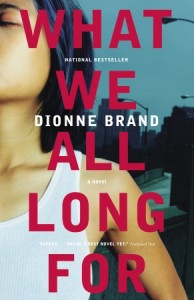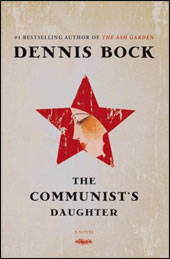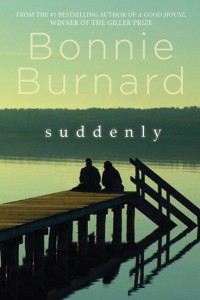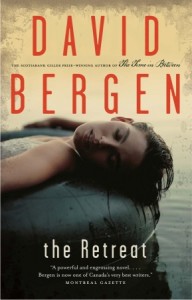 RRBB has been hitting some very fun milestones lately. He had his first taste of solid food (if you can call it that) as the picture here depicts. He slept through the night: twice (even though in the few hours preceding the long sleep he was over-tired and ridiculously manic, but not upset). He visited a sugar bush and an antique mall (or, rather, his bored parents dragged him to said sugar bush and said antique mall). And he was babysat for the second time while my RRHB and I went to see the Elephant 6 collective at Lee’s Palace on Friday night. Shockingly, he’s still the happy, well adjusted, easy baby we’ve brought into this world.
RRBB has been hitting some very fun milestones lately. He had his first taste of solid food (if you can call it that) as the picture here depicts. He slept through the night: twice (even though in the few hours preceding the long sleep he was over-tired and ridiculously manic, but not upset). He visited a sugar bush and an antique mall (or, rather, his bored parents dragged him to said sugar bush and said antique mall). And he was babysat for the second time while my RRHB and I went to see the Elephant 6 collective at Lee’s Palace on Friday night. Shockingly, he’s still the happy, well adjusted, easy baby we’ve brought into this world.
Of course, I’m still not sleeping from the drugs. But the odd night isn’t so bad here and there, I can handle it. It’s funny, I get poetic about it in a way: the sun rises and it sets, the moon comes out, but without that deep hours-long pause — time passing in an instant because you are, well, unconscious, everything blurs into one, breakfast feels like a late night snack, lunch disappears, and dinner is always rushed, trying to cram the day in before the bedtime routine starts. As always, I am at a loss for spoken words. Friends came over for dinner yesterday and I just couldn’t finish my sentences, kept forgetting words, used the wrong words, filled up the space with malapropisms — when does the ‘baby brain’ end? Perhaps when I get more consistent, consecutive rest, or perhaps when the RRBB turns 18 and heads off to university. Who knows. For now, I’m struggling with simple sentences while complex thoughts careen around my brain like snowflakes — always melting before they necessarily land.
We went to the Bloor/Gladstone library last week, and it was glorious. It really is a beautiful building and I’d forgotten how much I enjoy libraries. I haven’t truly visited one on a regular basis since being in grad school, and now that we’re pinching every penny, I simply can’t afford to buy books. I’ve been wondering a lot about other birth stories, wanting to compare experiences, wanting to maybe experience a little catharsis too in terms of my own trials and tribulations. So, one of the books I picked up was Rebecca Eckler’s Knocked Up (#27). I didn’t read anything other then What to Expect When You’re Expecting while I was pregnant, and now that I’m no longer pregnant (although still with-pooch), I am curious to know about other mothers-to-be. I mean, not everyone ends up on the special pregnancy ward of Mt. Sinai hospital with their lungs bleeding before giving birth, right?
In short, I wanted to know what normal was like, in a way. Granted, there was a little too much: “is my ass fat????” throughout Knocked Up, and I don’t know that I would have chosen a c-section had one not been chosen for me (I was oddly looking forward to the experience of giving birth). But I did laugh in various places, and while I know Eckler takes a lot of flack for her self-involved, me-first, examination of both pregnancy and parenthood, I actually enjoyed the lighthearted nature of the book. More chicklit than the nauseating “motherhood makes me a saint” stance of so much that I find online relating to this situation we’re in (yes, motherhood), Knocked Up gave me a bit of a mental break in terms of contemplating all that happened to me, and that’s all I’d ask of it. It was an easy-breezy read and I’m jealous of her ability to stay so completely focussed on not changing in the midst of such a huge change.
That’s not something I’ve been able to do — none of my clothes fit, in fact, I can’t even seem to find three-quarters of my wardrobe, having packed things away to who knows where in the house. My body is so very different and I barely recognize myself in the mirror. The shock of the naked self in the shower is enough to give up food forever, and were it not for the prednisone encouraging my stomach to crave every baked good on the face of this earth, I just might. I need to get more exercise, and I was actually jealous when the Rebecca in Knocked Up went out on a girl date barely two weeks into her daughter’s existence. There’s a level of guilt that I feel the moment I am away from the baby — that I am being a bad mother in a way by not constantly being in his company. I know that’s crazy, and ridiculous, and that doesn’t mean that I don’t hand him off to his father for hours at a time, but it doesn’t seem to be getting any easier leaving him. But to get back to my point, the physical changes — shorter hair, chubbier me, bloating from the meds — feel so much more permanent these days than the mental ones.
The mental part of being a mother seems easy these days. There’s love. You give it out, a lot of it. There’s patience, which sometimes gets tested. There’s joy. There’s boredom, and there’s bliss — but it all comes together in a pretty awesome package. So, I don’t blame someone for obsessing about the size of their ass — it’s overwhelming to contemplate all of the physical and mental changes at the same time, something’s got to give. I was remembering way back in the way back this week. An old boss I had at an evil corporation that I used to work for (which no longer exists) took us out for lunch within the first few months of her assuming a position she later proved she was utterly unqualified for. She had just finished mat leave for her second child and we were talking about babies. At some point, and I can’t remember what preceded the moment, she crinkled up her face and said that she really didn’t like babies, not even her own. Perhaps she likes her kids when they get out of the difficult infant stage, who knows, but all I’ve been thinking this week is how awesome babies are. I know I shouldn’t be so judgmental but as if I didn’t need another reason to post-actively hate the woman, now I even think she’s kind of inhumane. I’ve already forgotten the witching hour, the exhaustion, the frustration of the first little while, and moved on to complete and utter adoration.
I know it won’t always be like this — and we’re so lucky that we have an extremely easy going baby — but, for right now, I’m wallowing in the fun of it all. Charging ahead with crazy vampire kisses and holding that baby high up in the air to hear him squeal. Suffering through the whining when he’s in the car seat to enjoy a beautiful spring day where it neither rains nor snows — where the sun actually feels warm. Staying up far past my bedtime to enjoy a moment of non-couch (baby STILL only sleeps on me for long periods of time) freedom to watch reruns of Law and Order. Listening to him giggle uncontrollably downstairs as my RRHB plays with him. Even sobbing uncontrollably because of the hormones and whatever else is coarsing through my system because of the meds. It’s all awesome in a traditional sense of the word — it inspires awe in me that this is my life now, that my life contains another’s so completely at the moment, all things that I didn’t know when I was just pregnant and hoping to live. I am thankful that I did. I wouldn’t want to miss any of this.
Other library finds for this week: Blink, A History of the World in 10 and 1/2 Chapters, West Toronto Junction, Christina Rossetti: Selected Poems, as well as Knocked Up. I’ve been reading a poem a night before I go to bed, just dipping into them, and found this delicious line that somewhat sums up my last couple weeks: “O clamorous heart, lie still.”
As if it could. As if.
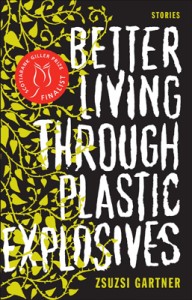 Short stories are epic and amazing things to read on the subway. They give you the false impression that they are “lighter” reading than novels because of their length, but I’ve been finding that so many of the collections I’ve read as of late pack an emotional punch that knocks me out after ten rounds a-la the Ali rope-a-dope, and none walloped me harder than Better Living Through Plastic Explosives by Zsuzsi Gartner.
Short stories are epic and amazing things to read on the subway. They give you the false impression that they are “lighter” reading than novels because of their length, but I’ve been finding that so many of the collections I’ve read as of late pack an emotional punch that knocks me out after ten rounds a-la the Ali rope-a-dope, and none walloped me harder than Better Living Through Plastic Explosives by Zsuzsi Gartner.